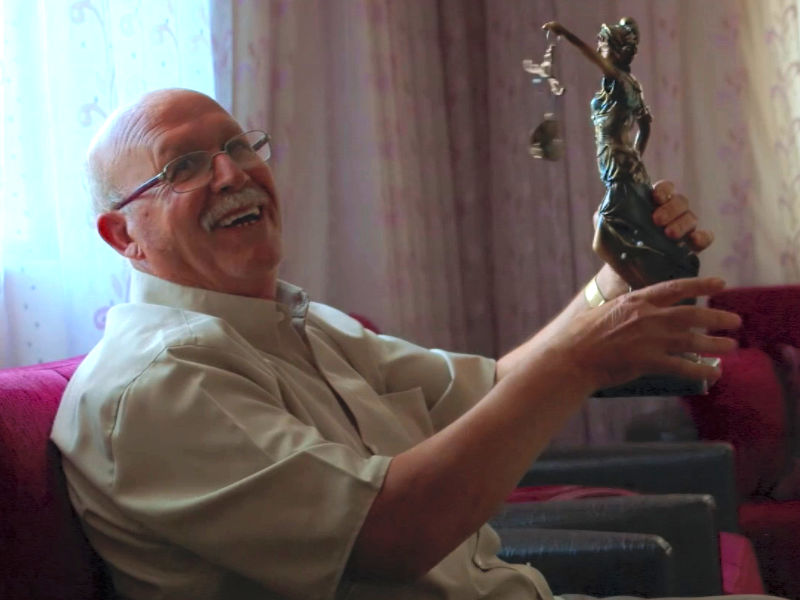The “Tigris rebels” are the inhabitants of the Kurdish village of Shkefta (in Turkish Suçeken) on the Tigris River in southeastern Turkey. They fought for decades against feudal landowners and the Turkish army to survive in their village. In 2020 Shkefta was flooded by the construction of a dam. This film tells the story of these people.
In 1978 feudal lords declared war on Shkefta. They wanted the peasants’ land. But the peasants fought back. The men of the big landowners besieged the Shkeftanians for months, shooting from the other side of the river at everything that moved. They sent a bomb hidden in a food bag. Eight people died, among them children and women. The Shkeftanians still could not be driven away.
After the military coup in 1980, almost all of Shkefta’s men were arrested, imprisoned and severely tortured because they were allegedly PKK members. The women took over the business. When the men were released in the 1990s, the army demanded that they become “village guards” - para-militia against Kurdish guerrillas. They refused and again the village was under siege. This time by Turkish soldiers. The commanders restricted the villagers’ freedom of movement and set an ultimatum: “Either you become village guards, or we will burn down the village”.
The Shkeftanians wrote letters of protest to political parties and the government, even to US President Clinton. Finally, Turkish businessman Cem Boyner intervened in Ankara, and the village narrowly escaped destruction.
The farmers then founded a cooperative and bought an excavator to process sand from the river. In the middle of a rough landscape, Schkefta developed into probably the most beautiful village on the Tigris. They paved the streets, and sewers were connected. Gardens and fields surrounded Shkefta. Then came the construction of the Ilisu dam 60 km downstream. During this phase, the Schkeftans met with Nedim Hazar and his team. Together they embarked on an 18-month film journey, starting with their past, through events like the Armenian genocide as transmitted by their elders, the war in Syria and current authoritarian Turkish politics. With stops in an Iraqi-Kurdish refugee camp and the then embattled Kobane, among other places, this film tells the story of humble people who insist - as the poet says -
“To live! Like a tree alone and free
Like a forest in brotherhood.”
Due to the restrictive policies of the Turkish government, especially from 2015, this film could not be shown in Turkey at all. Otherwise, the villagers would have been under danger. The shooting and interviews took place mainly in 2014, at a time when freedom of expression was halfway possible. With the support of the Heinrich Böll Foundation, “Tigris Rebels” was shown in art house cinemas in 12 cities in Germany in 2017.
In 2020, the Ilisu Dam came into operation. It flooded about one hundred villages in the region, including Shkefta and the neighbouring ancient city of Hasankeyf.
TOLD AND PLAYED BY
The Inhabitants of Schkefta - Suçeken
WRITTEN AND
DIRECTED BY
Nedim Hazar Bora
IDEA
Ulrike Dufner
MUSIC
Adam Hurst
DIRECTOR OF PHOTOGRAPHY
Kadir Yücel
ASSISTANT
Ozan Ozan
LINE PRODUCER
Gülşin Ketenci
SOUND RECORDING
Bülent Yurttaş
Erkan Akpınar
TRANSLATION
Sehrete Bozkur
SPONSOR
Heinrich Böll Foundation
SCREENINGS
Various Art Cinemas in Germany, 2017
FESTIVALS
Duhok International Film Festival - Autonomous Kurdish Region / North Iraq

Mahsum Kepti
Village Mayor (1948 -2016)
In the 80s, Mahsum Kepti spent several years in the notorious Diyarbakir prison as an alleged terrorist. The film documents, among other things the wedding of his youngest son Serdar.














